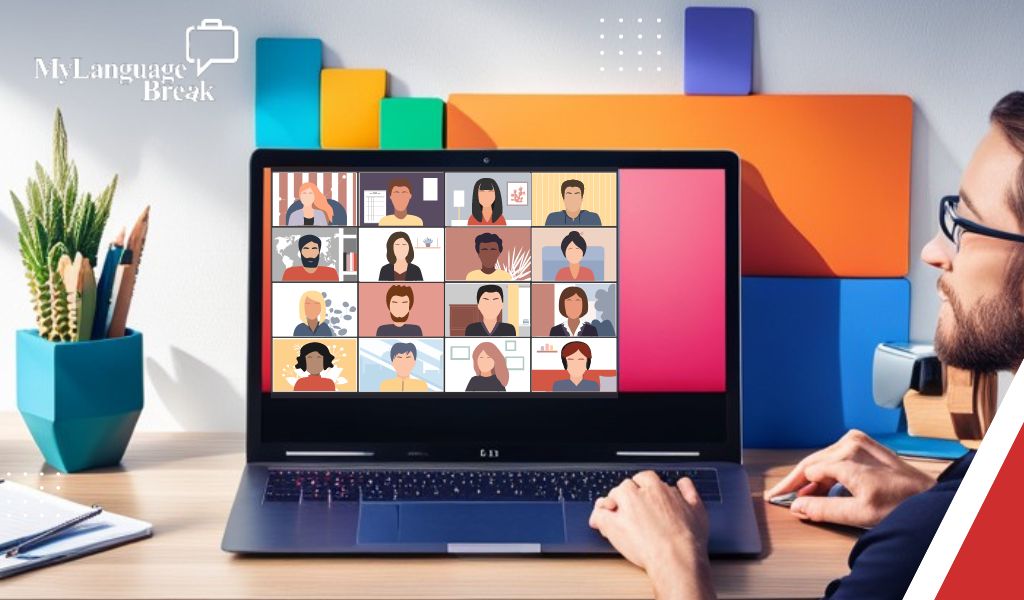10 Best Ways to Learn Foreign Languages – The Secrets
Learning a foreign language is not as difficult or impossible to accomplish. Basic communication skills can be learned in weeks, and more advanced techniques are only limited by your imagination and time.
If you want to learn foreign languages quickly, it is possible. Experts say that with the right instruction and practice, one can learn basic communication skills within weeks, while mastering more complex aspects of another international tongue. It could take months or even years, depending on how much time they’re willing to invest into their studies. However, don’t let this discourage you; because, there are ways around these setbacks such as taking classes through podcasts that allow people who work full-time schedules to still have access to hear conversational drills every day.
Keep some of these in mind, and you’ll be ready to find an intensive language program before you know it!

How to Get Started
In today’s society where technology takes over most jobs which means workers are often forced into situations requiring them to learn foreign languages, it is essential that people learn how to quickly adapt to and understand others.
1. Movie Marathon
With the best way to learn language at your fingertips other than learning from native speakers, you can take on any challenge head-on.
Whether it be learning phrases or vocabulary words in another country’s accent— subtitles are always an option.
2. Look for New Friends
Making new friends who speak the language you want to learn can be an amazing method for learning a foreign one.
Casual conversations with these individuals will allow practice without feeling self-conscious or on edge, and they might even help fill in any gaps of knowledge! If there’s no community like this available where YOU live, then look into starting your own WhatsApp study group using people from nearby locations.
Imagine a world where you can learn from someone else’s culture just as much as they might be able to teach yours.
Exchange of letters and conversation between native speakers using their native language, may it be French or Spanish. It will help increase how well-versed you learn the language -and who knows what could happen when two people struggle through an assignment together?
3. Special Cuisines when Dining
You’ll soon be able to order what you want without having any trouble when dining abroad because of the language barrier. It may sound daunting at first, but with just one meal comprised in your target cuisine and food names sticking by their translation into English or Spanish. You’ll find yourself becoming more confident while talking about dinner table conversations using the foreign language of your choice.
4. Look for Online Resources
The internet can be a truly magical place. If you’re looking for ways to learn foreign languages, there are many resources available! You could go with Google Translate or take advantage of helpful browser extensions that you can use in language learning.
Once you sign up for an online course, there are many ways to learn languages. You can chat with other learners or watch YouTube videos and read articles related to the topic of your choice. With access available at our fingertips via technology like smartphones, tablets, etc., reaching these goals has never been easier than before.
The internet offers a wealth of information about different cultures around the world, which will help us understand people better while also improving English skills because Google translates whatever we type into another language automatically.

5. Checkout Online Courses
You’ll need to ask those you speak with for feedback and make sure they know it’s OK to correct your pronunciations and grammar, although experts say you need not worry too much about grammar in the early stages.
Use the language first and focus on the grammar later, Lewis said. When you are ready to pick up the grammar, he recommended using podcasts at sites such as coffeebreaklanguages.com or languagepod101.com as particularly useful in picking up grammar and dissecting the native language.
6. Upskilling Yourself
With small steps, you can learn a new language. Start by taking time every day to write out sentences in your target languages. Look up words and sections that aren’t clear on Google or YouTube videos for more help with constructing these phrases. If there’s someone else who speaks it as well, then have them double check yours too, so no mistakes go unnoticed before meeting again next week.
This is an easy trick, just like keeping ourselves accountable through our daily goals-and soon enough we’ll be able to talk all sorts of wonderful things from home without even trying hard at first
7. Vocabulary Breakdown
Learning vocabulary is like playing Bingo!
It’s fun to see what words you can get your hands on, but it’s even more rewarding when the word makes sense in context.
By focusing on one area or topic each week (i e transportation), then moving onto another subject next time around-you’re force lining yourself into learning new vocab keywords while also creating manageable chunks that are easy for retention purposes
8. Listen to the Radio
While it may seem counterintuitive at first, listening to the radio in your target language can actually help you learn words and phrases. Try tuning into a foreign-language station on an app or through streaming content — even if just for five minutes per day. It’s been shown that when people hear spoken words regularly, they start remembering them better than those who don’t have this kind of exposure (although be mindful about how much noise pollution there might also tend toward).
9. Take a Flight
The best way is by visiting countries that speak the target tongue and living with locals who don’t share any common languages with them–this full-on immersion style training has been proven effective for many students. This is especially those interested in learning more than just 1 or 2 foreign languages.
10. Join Immersion Groups
Language learners can find a variety of meetups and groups that offer language learning opportunities. There are online alternatives like italki, which connects native speakers with students all over the world through video chat rooms for an interactive experience; lang-8 offers free introduction courses in many languages as well.

The acquisition of new languages is not a small task.
Each language has its set rules and principles to learn, which can make it difficult for those who are just starting out in their study abroad experiences or even at home with friends from other countries. This is because there may be some cultural norms that they have never experienced before (e., speaking only Spanish).
But fear not! With time, these challenges will become easier as you get more accustomed to yourself both physically AND mentally while acquiring this skill – after all, bilingual people typically do better on tests about foreign cultures than monolingual counterparts do.
